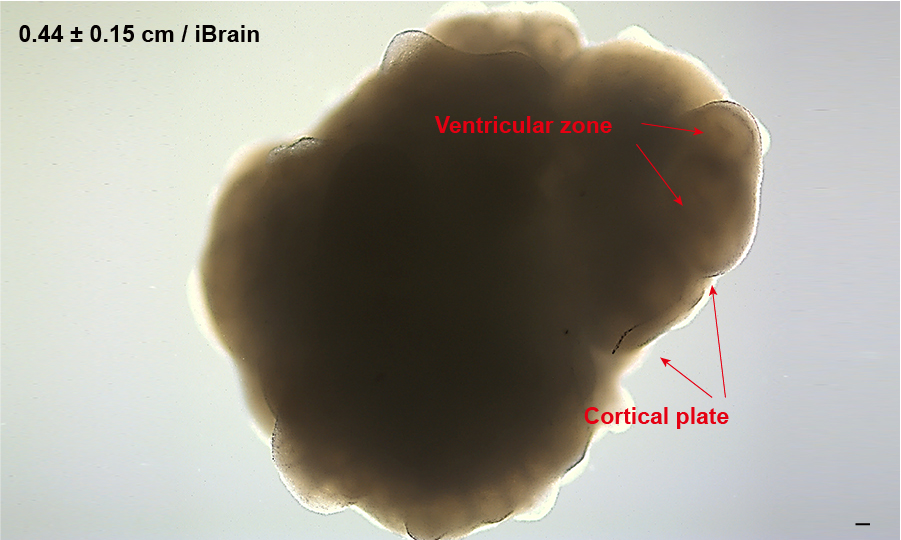
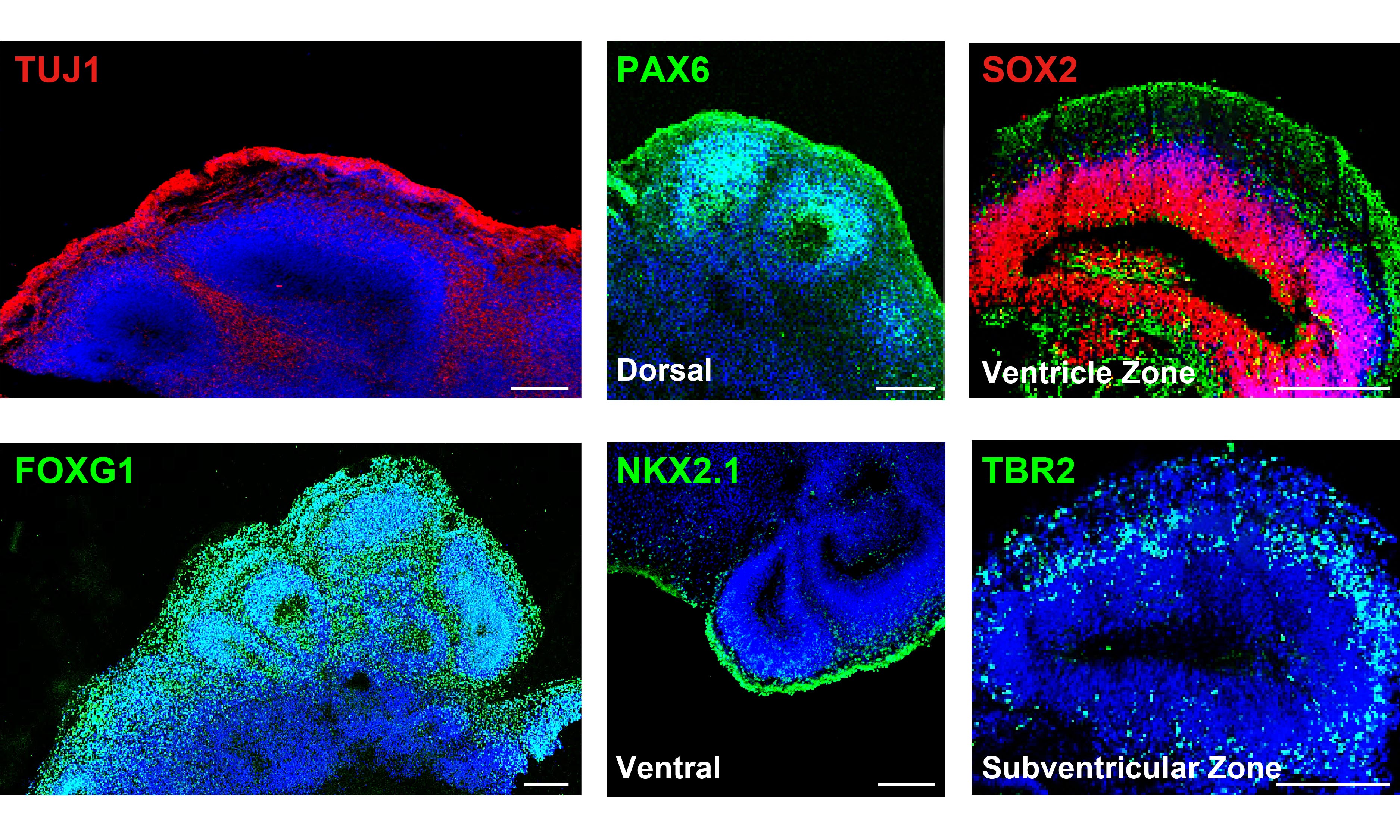
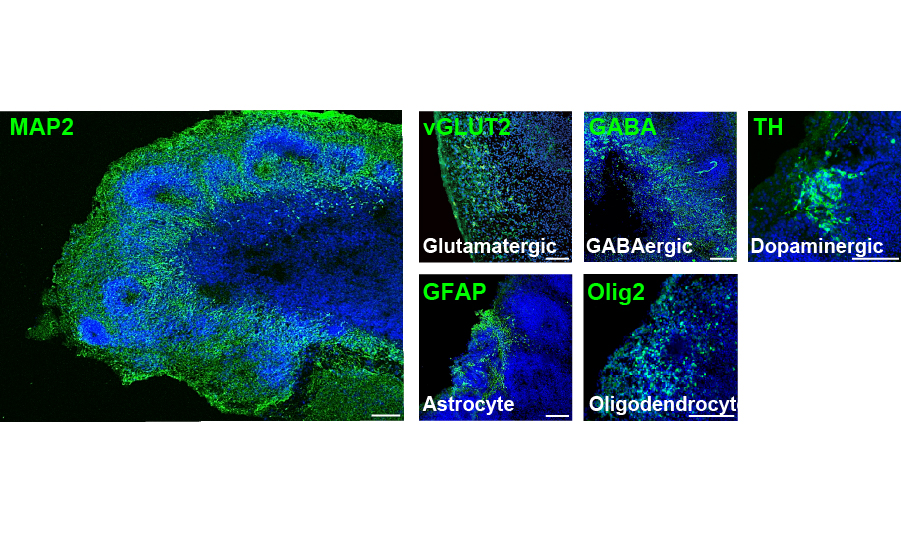
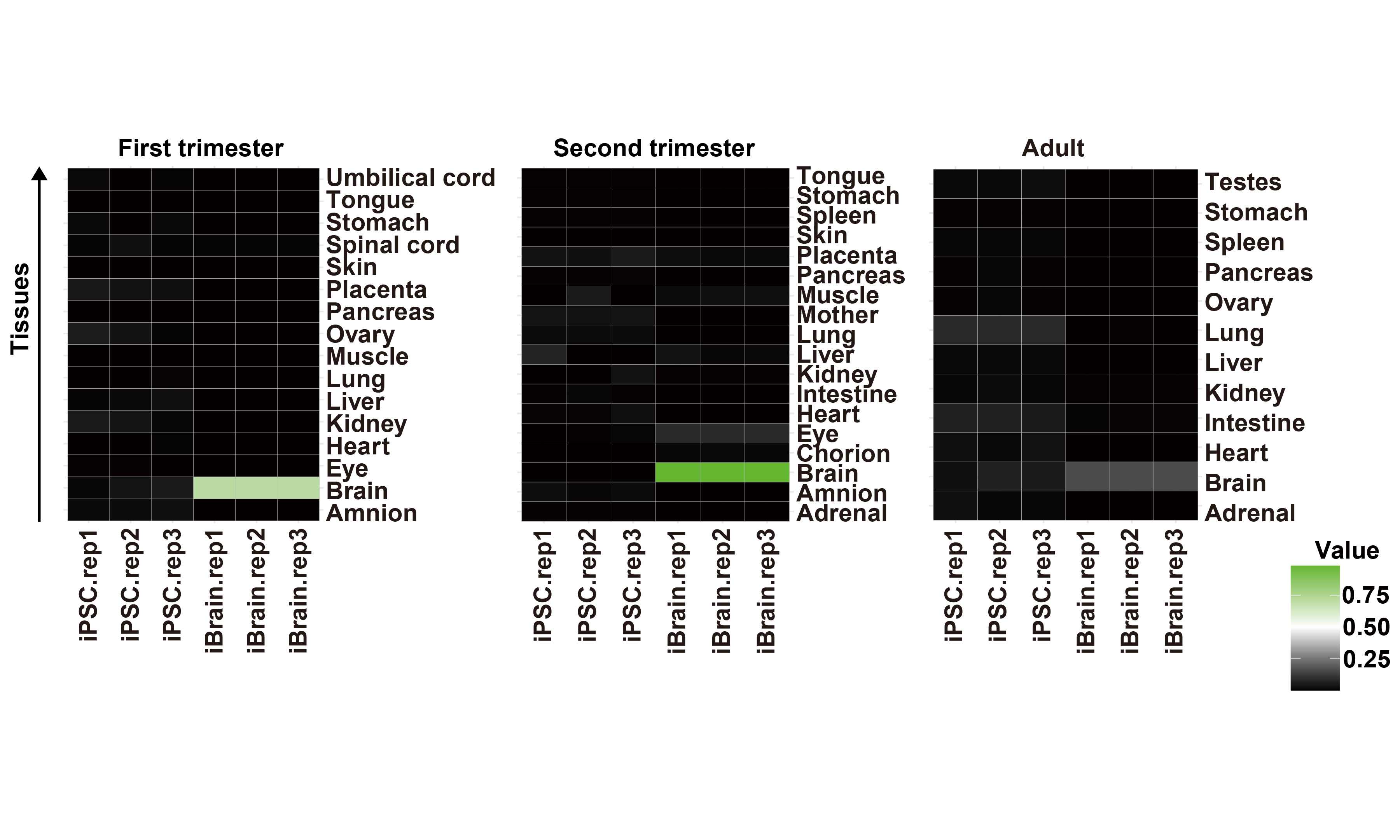
使用“iPSC向前脑类器官分化试剂盒(Cat. 3d0080)”产生
自发形成VZ样、SVZ样及CP样等结构,含有谷氨酰胺能、多巴胺能神经元、GABA神经元及少突胶质细胞、星形胶质细胞
已验证前脑自发电生理活动,包括 MEA、自发动作电位及诱发动作电位等电信号的产生
适合作为前脑发育研究,中枢神经系统疾病及药物筛选的精准人源化工具
“即用型iPSC源前脑类器官 (m-model)” 是以人诱导多能干细胞 (iPSC, induced pluripotent stem cells) 为起点细胞,基于前脑发育进程的关键分子信号,凭借iPSC谱系共分化技术诱导分化形成。iBrain具有更接近人真实前脑的特征性结构和细胞谱系构成,为发育研究、病理解析、药物筛选、及再生研究提供新一代人源化精准工具。
| 遗传信息 | |||
| • 类器官类型: | • 来源: | • 性别: | |
| 脑类器官 | 成纤维细胞 | 女 | |
| • 捐助者状态: | • 年龄: | ||
| 健康 | 20 |
Characteristics
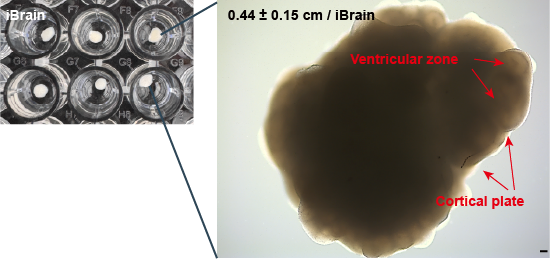
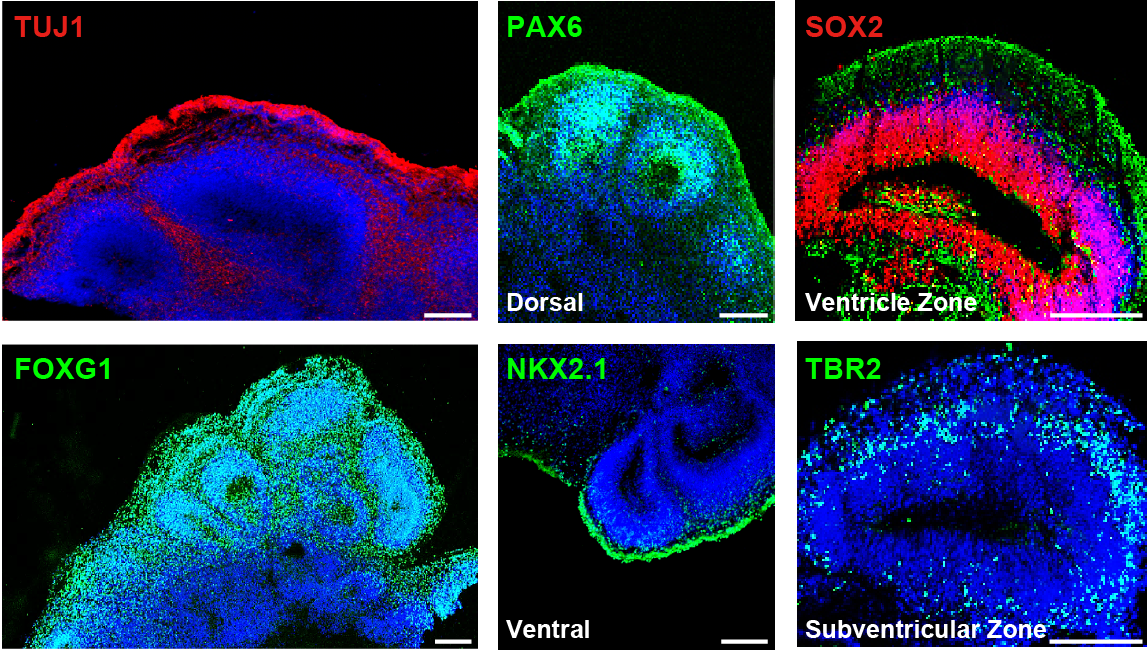
Day-65 iBrains generated using brain differentiation system met dorsal forebrain identity (FOXG1+ NKX2.1+), and displayed human cerebral characteristic structures involving CP (cortical plate, TUJ1+/bright-field), VZ (SOX2+, ventricular zone), and SVZ(TBR2+, subventricular zone). Scale bar = 100 μm.
Characteristics
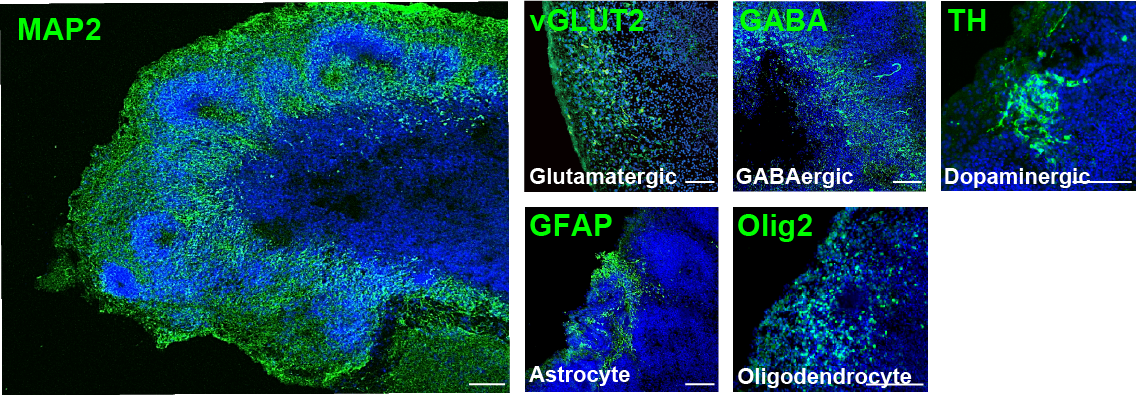
Immunofluorescence of day-90 iBrains identified many physiologically relevant neural cell types, including glutaminergic (vGLUT2+), dopaminergic (TH+) and GABAergic neurons (GABA+), as well as astrocytes (GFAP+) and oligodendrocytes (Olig2+).Scale bar = 100 μm.
Activity of iBrain Organoids

MEA (multi-electrode array) recordings from a day-90 iBrain continuously monitored spontaneous electrophysiological activities.
Patch clamp results

Patch-clamp recordings from a day-89 iBrain show spontaneous and evoked action potentials.
Assigning Developmental Stages to iBrain with KeyGenes Tool
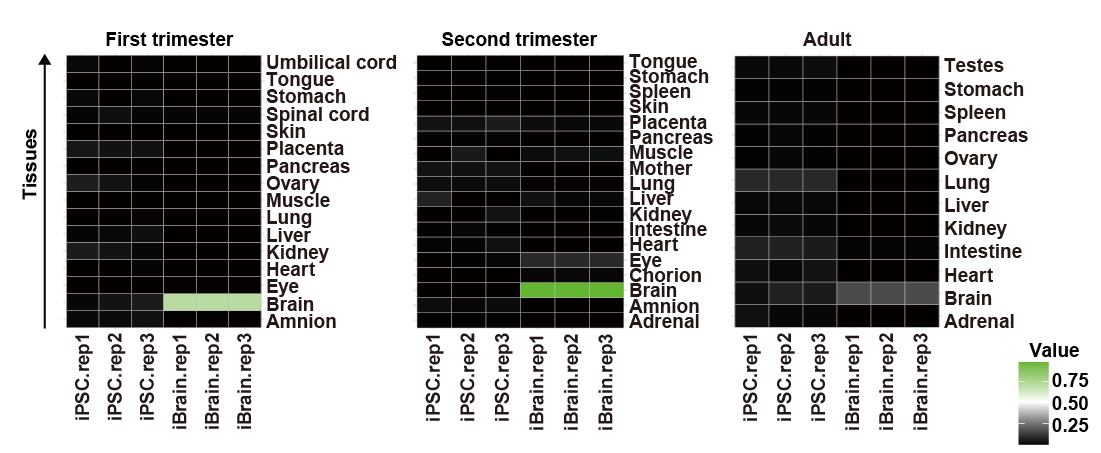
Comparison of genome-wide expression in day 120 derived from iPSC with the KeyGenes database, showing the best match with Fetal 1st/2nd trimester.
Liu F, Liu T, Wu X, et al. iPSC-induced multilineage liver organoids, small intestinal organoids and brain organoids sustain pangenotype hepatitis E virus propagation[J]. Gut, 2025.
Madeline,A,Lancaster,et al.Cerebral organoids model human brain development and microcephaly.[J].Nature, 2013.
Kadoshima T , Sakaguchi H , Nakano T ,et al.Self-organization of axial polarity, inside-out layer pattern, and species-specific progenitor dynamics in human ES cell-derived neocortex.[J].Proceedings of the National Academy of Sciences of the United States of America, 2013, 110(50):20284-20289.
Paca A M , Sloan S A , Clarke L E ,et al.Functional cortical neurons and astrocytes from human pluripotent stem cells in 3D culture[J].Nature Methods[2025-02-05].
Nguyen X Q H N , Song M M , Hadiono C ,et al.Brain-Region-Specific Organoids Using Mini-bioreactors for Modeling ZIKV Exposure[J].Cell, 2016,165(5).
Sakaguchi H , Ozaki Y , Ashida T ,et al.Self-Organized Synchronous Calcium Transients in a Cultured Human Neural Network Derived from Cerebral Organoids[J].Stem Cell Reports, 2019, 13(3).